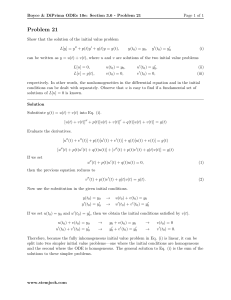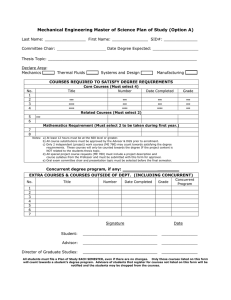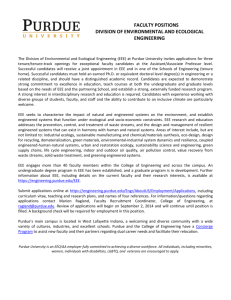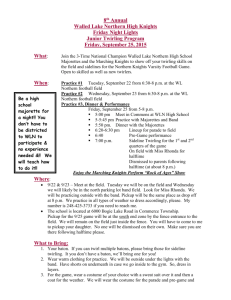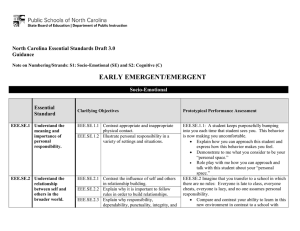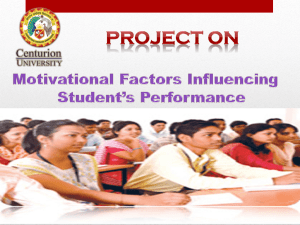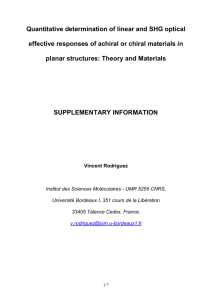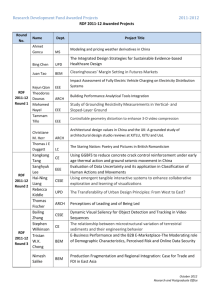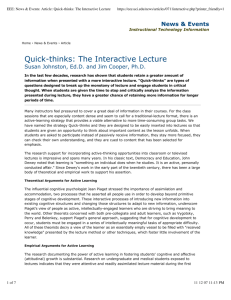Presentation: Climate Change Impacts on Health
advertisement
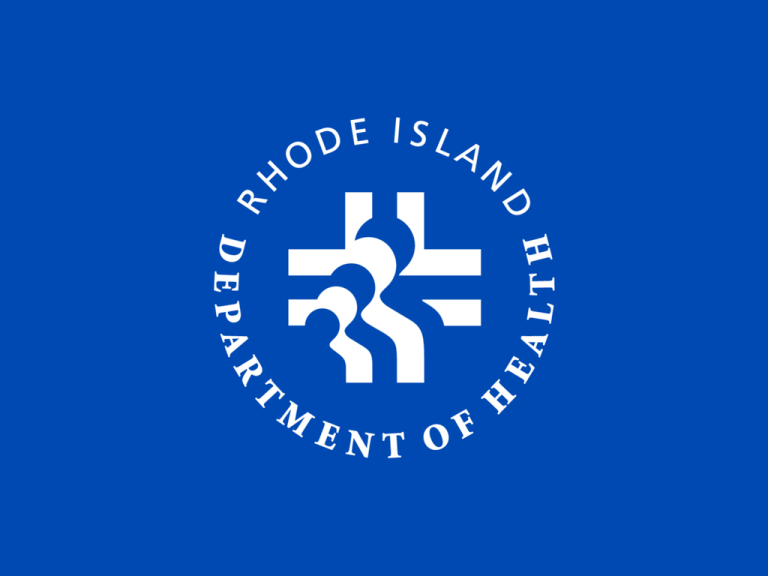
Climate Change Impacts on Health Robert Vanderslice, PhD Healthy Home and Environment Team Lead RI Department of Health Advisory Board Member, Metcalf Institute Goal for today – ??? • Can we use health data to make informed decisions about adapting to climate change? • Can we employ our competent systems for reporting disease, tracking hospital/ED visits, etc., to inform the public of direct impacts? • Are the indirect health effects of greater importance than the direct effects we measure? • Can we develop a system to track the broader health impacts of climate change? Context “To grab public interest, link climate change to health” • Really? – Name a candidate elected on a ph agenda. – Was “public health” mentioned at debate? • Really! Informed policy requires data. Context • Leadership for climate change in PH • CDC’s role waned 10-years ago • Now fund RI Health and Climate Change Project – $250K/yr for 4 years to create a PLAN! • RI Climate Change Commission • Failed to meet the first year • Tardy on 3/2012 reporting deadline. • Bill to move Commission was vetoed Climate Change Prediction Increased temp/drought, rain/flooding, storminess/sea level rise. Example: Increased average temp, later frosts, weaker winter freezes creates: – More disease vectors (ticks, mosquitoes) • Extended season and geographic range – More pollen, pests, algae, and pathogens – Impacts food production, wildlife – how? More WLN/EEE This year, 518 WLN cases in Texas + WLN/EEE in RI mosquito pools, 3 cases Reschedule outdoor events Cancel evening recreation programs Context – other diseases RI WLN/EEE Cases 2001 – 1 2002 – 0 2003 – 7 2004 – 0 2005 – 1 2006 – 0 2008 – 1 2009 – 0 2010 – 0 2011 - 1 2012 - ? Tick-borne: Babesiosis – 76; Lyme - 202 No camping, no scouts, eradicate deer, close parks? STDs: Chlamydia – 3346 No dances, cancel prom? Data for decisions • Competent disease reporting system • Accurately track serious EEE/WNV • Identify emerging diseases: dengue, malaria • Lyme and other tick-borne • Non-systematic approach to indirect impacts. • Linking pesticide exposures to health occurs when the person knows they were exposed, goes to a physician, and calls Poison Control. • Impacts of rescheduling sporting events: advocates for sports programs credit them with decreasing crime, obesity, improve mental/physical health More Extreme Heat • More air quality alert days, • We can link cardiovascular/respiratory death/ hospitalization to air quality in LA, not RI • More air quality alerts lasting several days • Impacts may be easier to measure • Increased number and/or severity of heat alert days • People die during heat waves Chicago heat wave- 1995 • 700 excess deaths • Major risk factors – Age, bedridden, shut-ins, top floor apt • Major protective factors – Air conditioning: home or lobby equivalent – Having a friend or relative in Chicago • Climate change adaptation requires identifying/responding to those at risk Conclusion • Public health has competent system for quantifying major health/disease trends • Will we be able to track impacts of climate change that fall outside of this system? • How can we work together to do this? Bob Vanderslice 401.222.7766 Robert.Vanderslice@health.ri.us www.health.ri.gov
